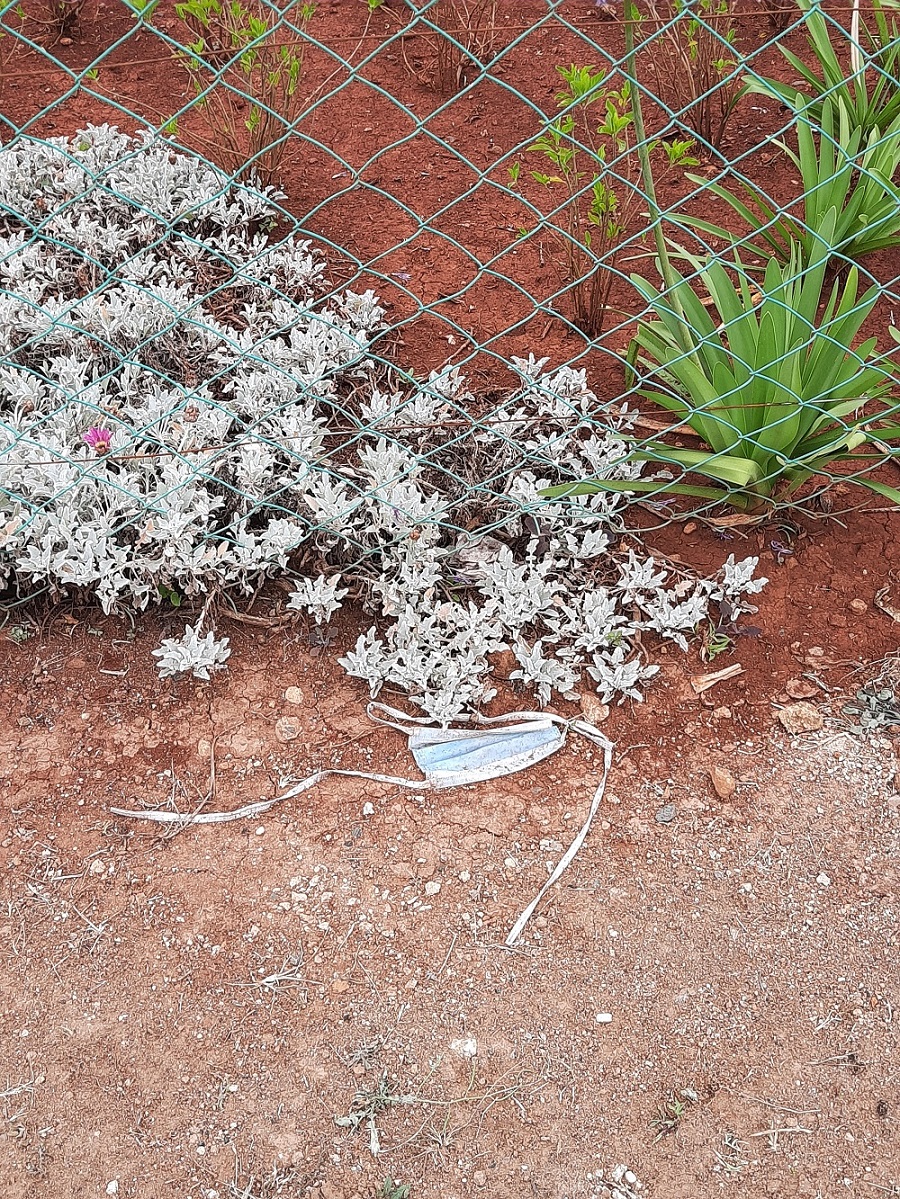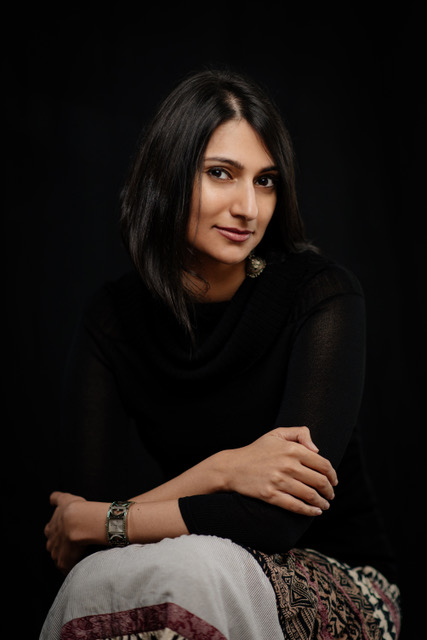Stranded in a Foreign Land during the Pandemic
Since the pandemic became a threat in this part of the world, some time early in March, the government closed the borders, and I’ve been stranded in a country far away from home.
The newspaper articles I’ve read about how this affected us, stranded Mauritians, with dispassionate objectivity lay down facts and figures about those who are stranded, in which countries, why, ending with promises by the Mauritian government that we will be home soon.
I’m experiencing a completely new type of uncertainty by being stranded here in Kenya. I have nightmares almost every night because I have seen a friend lose his father to the pandemic, banned from travelling to the UK to see him or attend the funeral because of border closures. My friend now awaits the borders to open in Dubai so that he may fly to the UK to see his widowed mother, and visit the grave of his father to come to terms with his loss.
I am constantly worried about my aged parents too. Papa is frail after a bout of severe pneumonia one year ago and hasn’t really recovered from it, so that during the curfew in Mauritius, I suffered the guilt of hearing about his trips to the supermarket which could have exposed him to the virus. I should have been there I thought, to do all that for him. For them. And Mummy had to undergo a mastectomy for cancer two years ago. A traumatic operation whose after effects, whose butchery she hasn’t completely recovered from. After the surgical intervention, she refused hormone therapy which interfered with her sleep, her appetite, her state of mind. The doctor looked at the statistics and said it was fine, but warned that it would shorten her lifespan.
He has given her no more than ten years. The clock’s ticking irrespective of me, of why I’m not by her side.
The Mauritian government decided to close the borders early in March and took less than one day to enforce it. We were all caught off guard.
Since 11 May, Mauritius has declared itself Covid-free, and Mauritians are now circulating freely in the country and economic activity has resumed, with the exception of industries dependent on international travel—Because the borders are still closed.
On the other hand the number of infections in Kenya is on the rise, with six hundred new cases being recorded everyday. Mummy worries that I’ll catch it, so I avoid telling her when I go out.
I hear the Kenyan government has just placed an order of 100,000 body bags—just in case.
We were promised to return home on a chartered flight at some point in April, and told that the Kenyan government had given us permission to fly out—the Mauritian one didn’t, so that too subjected us to another one of those cycles of hope and despair.
One month ago, the government proposed a schedule of repatriation flights from all over the world. Kenya was on the list.
I happily posted the schedule on Facebook, and received messages with good luck, see you soon, safe return, thank god it’s over, etcetera.
But I never heard from them again.
Maybe I will be stuck here for a few more months—It’s already been five and a half, so why not more?
This picture… I took it in Karen, Nairobi, Kenya a few days ago. It reflected my emotions at the time, my frustration of being stranded.
I’m scared. Scared of hoping.
Während der Pandemie in einem fremden Land gestrandet
Da die Pandemie in diesem Teil der Welt Anfang März zu einer Bedrohung wurde, schloss die Regierung die Grenzen und ich bin in einem Land weit weg von zu Hause gestrandet.
Die Zeitungsartikel, die ich darüber gelesen habe, wie uns gestrandete Mauritier das betrifft, bringen mit nüchterner Objektivität Fakten und Zahlen zu denen, die gestrandet sind, in welchen Ländern, warum. Sie enden mit Versprechen der mauritischen Regierung, dass wir bald zu Hause sein werden.
Ich erlebe eine völlig neue Art der Unsicherheit hier in Kenia. Ich habe fast jede Nacht Albträume, weil ich gesehen habe, wie ein Freund seinen Vater durch die Pandemie verloren hat. Er durfte wegen Grenzschließungen nicht nach Großbritannien reisen, um ihn zu sehen oder an der Beerdigung teilzunehmen. Mein Freund wartet nun darauf, dass die Grenzen von Dubai geöffnet werden, damit er nach Großbritannien fliegen kann, um seine verwitwete Mutter zu sehen und das Grab seines Vaters zu besuchen, um seinen Verlust zu verarbeiten.
Ich mache mir auch ständig Sorgen um meine alten Eltern. Papa ist nach einer schweren Lungenentzündung vor einem Jahr gebrechlich und hat sich noch nicht wirklich davon erholt. Ich fühlte mich schuldig, als ich hörte, dass er während der Ausgangssperre auf Mauritius in den Supermarkt ging, wo er sich den Virus hätte holen können. Ich hätte dort sein sollen, dachte ich, um all das für ihn zu erledigen. Für sie. Mama musste sich vor zwei Jahren einer Mastektomie wegen Krebs unterziehen. Eine traumatische Operation – von den Nachwirkungen, dem Gemetzel hat sie sich nicht vollständig erholt. Nach dem chirurgischen Eingriff brach sie eine Hormontherapie ab, weil die ihren Schlaf, ihren Appetit und ihren Geisteszustand beeinträchtigte. Der Arzt sah sich die Statistiken an und sagte, es sei in Ordnung, warnte jedoch, dass das ihre Lebensdauer verkürzen würde.
Er hat ihr nicht mehr als zehn Jahre gegeben. Die Uhr läuft unabhängig von mir, unabhängig davon, warum ich nicht an ihrer Seite bin.
Die mauritische Regierung beschloss Anfang März, die Grenzen zu schließen. Es dauerte weniger als einen Tag, dies umzusetzen. Wir wurden alle überrascht.
Am 11. Mai hat sich Mauritius als Covid-frei erklärt. Mauritier können sich nun frei im Land bewegen und die Wirtschaftstätigkeit wurde wieder aufgenommen, mit Ausnahme von Branchen, die vom internationalen Reiseverkehr abhängig sind – weil die Grenzen immer noch geschlossen sind.
Auf der anderen Seite steigt die Zahl der Infektionen in Kenia, und täglich werden 600 neue Fälle registriert. Mama macht sich Sorgen, dass ich mich anstecke, also sage ich ihr nicht, wenn ich ausgehe.
Ich habe gehört, die kenianische Regierung hat gerade 100.000 Leichensäcke bestellt – für alle Fälle.
Man versprach uns, dass wir irgendwann im April mit einem Charterflug nach Hause zurückkehren würden, und sagte uns, dass die kenianische Regierung die Erlaubnis zum Abflug gegeben hatte – die mauritische nicht. So wurden wir einem weiteren Zyklus der Hoffnung und Verzweiflung ausgesetzt.
Vor einem Monat schlug die Regierung einen Zeitplan für Rückführungsflüge aus der ganzen Welt vor. Kenia war auf der Liste.
Ich teilte den Zeitplan glücklich auf Facebook und bekam Nachrichten: Viel Glück! Bis bald! Komm sicher nach Hause! Gott sei Dank, es ist vorbei!
Aber ich hörte nie wieder etwas.
Vielleicht stecke ich hier noch ein paar Monate fest – es sind schon fünfeinhalb, also warum nicht mehr?
Dieses Foto … Ich machte es vor einigen Tagen in Karen (Nairobi/Kenia). Es spiegelte meine Gefühle damals wider, meine Frustration darüber, gestrandet zu sein.
Ich habe Angst. Angst vor der Hoffnung.
Übersetzung: Iris Thalhammer
Exile Lot-Pei pandan Pandemik
Depi pandemik inn vinn enn menas pou nou parti Lemond – debi Mars parla – gouvernman finn ferm frontier. Mo’nn retrouv mwa tase lot-pei, lwin ar mo lakaz.
Bann lartik zournal mo’nn lir lor lezot Morisien kouma mwa ki’nn retrouv zot bloke deor, ti donn ransingnman lor komye ti ena dan sa mem ka-la, dan ki diferan pei, dan ki sirkonstans. Avek kom konklizion, promes ki gouvernman Morisyen inn fer pou ki nou tou rant lakaz biento.
Zordi mo pe viv dan enn linsertitid toutafe nouvo, enn sitiasion lexil dan Kenya. Mo pe gagn kosmar parski mo’nn trouv enn kamwad perdi so papa lakoz pandemik, dan inposibilite al UK pou rann visit ou asiste so lanterman akoz fermtir frontier. Mo kamwad pe atann reouvertir depi Dubai pou ki li pran avion pou UK pou al rann vizit so mama ki’nn vinn vev, e al get tom so papa pou fer so dey.
Sa fer mwa toultan trakase kan mo mazinn mo bann prop paran ki pe rant dan laz. Papa so lasante frazil apre enn kriz pnemoni in an desela e li pankor vreman degaze. Avek kouvrefe dan Moris, mo santi mwa koupab akoz li bizin al sipermarket e riske kontaminasion ar viris-la. Mo ti-a bizin laba pou rann li servis fer so komision. Pa zis pou li anfet me pou tou le de. Mami finn sibir enn mastektomi lakoz kanser, de z’an de sela, enn loperation tromatizan ki’nn fer masak dan so lekor, avek sitan konsekans ki li pa’nn rekipere. Apre loperasion, li’nn aret hormone therapy ki ti pe deranz so somey, so lapeti, so lape despri. So dokter inn get statistik e deklare ki li pou korek me so lesperans-de-vi pou diminye – maximom dis banane. E letan pe pase, ki mo akot mo mama oubien non.
Kan gouvernman Morisien finn desid ferm frontier, li’nn pran mwins ki enn zour pou met sa an pratik. Sa finn pran nou tou par sirpriz.
Depi le 11 Me, Moris finn deklare li COVID-free, se ki permet tou bann Morisien sirkil libreman dan pei. Bann aktivite ekonomik finn repran a leksepsion bann sekter ki depann lor voyaz internasional – akoz frontier pe res ferme.
Isi dan Kenya, se lekontrer. Bann ka infeksion pe ogmante ek 600 nouvo ka sak zour. Mami pe trakase pou mwa tansion mo atrap viris-la. Mo evit les li kone kan mo bizin sorti depi lakaz.
Mo’nn tann dir gouvernaman Kenyan fek komann 100,000 sak-lekor oka bizin…
Nou ti’nn gagn promes pou fer nou retourn lakaz lor enn vol charter an Avril, e ti dir nou ki gouvernman Kenya pou otoriz nou depar. Me nou gouvernman pa finn donn lotorizasion so kote. Donk nou touzour ankor anplas.
Enn mwa desela, gouvernman Moris finn propoz enn kalandriye rapatriman depi diferan pei dan Lemond. Kenya lor sa lalis-la.
Mo finn poste sa bon nouvel-la lor Facebook, e mo ti resevwar enn ta mesaz pou swet moi bonn sans, bon voyaz, nou ava zwenn biento, granmersi Bondie tou sa fini, eksetera. Me mo pa’nn tann narnie depi sa…
Kitfwa mo pou res tase isi ankor boukou letan. Li’nn fini fer sink mwa edmi, kifer pa azout ankor ?
Sa foto-la… Mo’nn pran li dan enn landrwa apel « Karen » , dan Nairobi, Kenya, ena de-trwa zour. Li reflet fristrasion ki mo ti pe resanti kan mo’nn retrouv-mwa finn bloke deor.
Mo pe per. Mo gagn per espere…
(Tradir par Carl de Souza)
Teilen












